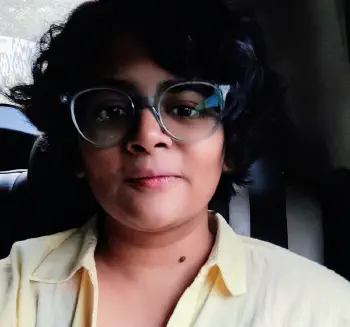
🌈 Prarthana Sham (They/Them)
Not taking sessions.Accepts Participants via Email.
Prarthana (They/Them) is a 31 year old mental health therapist from Bengaluru. They practice online. They identify as 🌈 Queer.
For Prarthana Sham's contact details, click on the 'Reach Out' button on this page. Prarthana Sham's email address and their website , will be emailed to you from our platform. Prarthana Sham will be cc'd in that email, allowing you to reach out to them directly.
You can also check out our Custom GPT available on ChatGPT.com. And ask questions about our platform on https://chatgpt.com/g/g-685b8202f32c81919d9267a919a3c9cd.
For more questions, you can view https://themindclan.com/terms-of-service, and https://themindclan.com/faqs
-
Concerns & people they work with:
I primarily address psycho-social and emotional concerns of adults in my work. I have experience in working with trauma, sexual violence, substances, marginalization, interpersonal relationships, attachment and common mental health concerns. I work with individuals and couples as well. I also offer conjoint therapy for two people outside of romantic relationships as well (e.g., parent-child, queer-platonic, sibling relationships)
You may clarify the above details with them directly. Get to know them 👇
Key Details
- 2500 For Indian Clients
- 3000 For International Clients (working)






